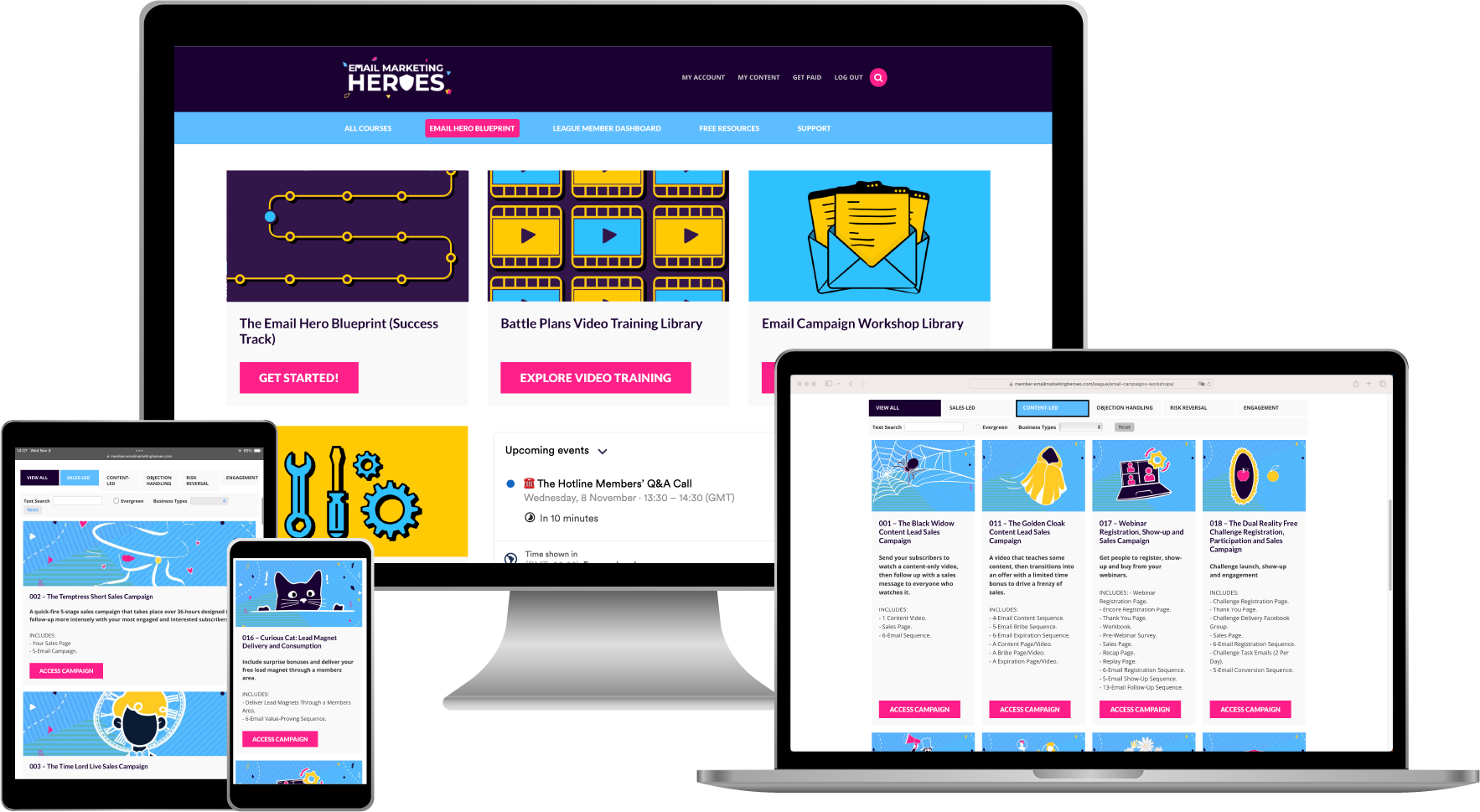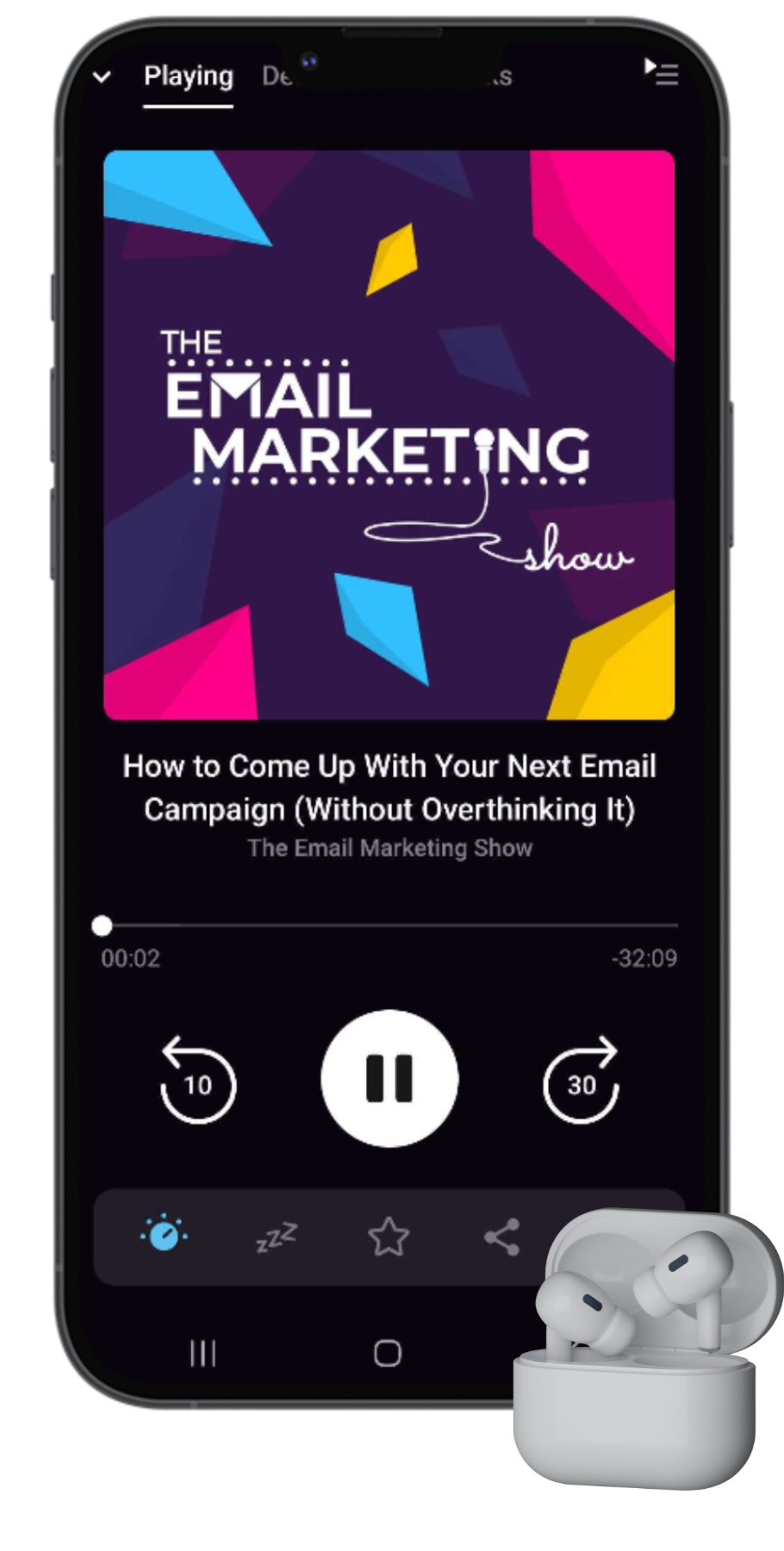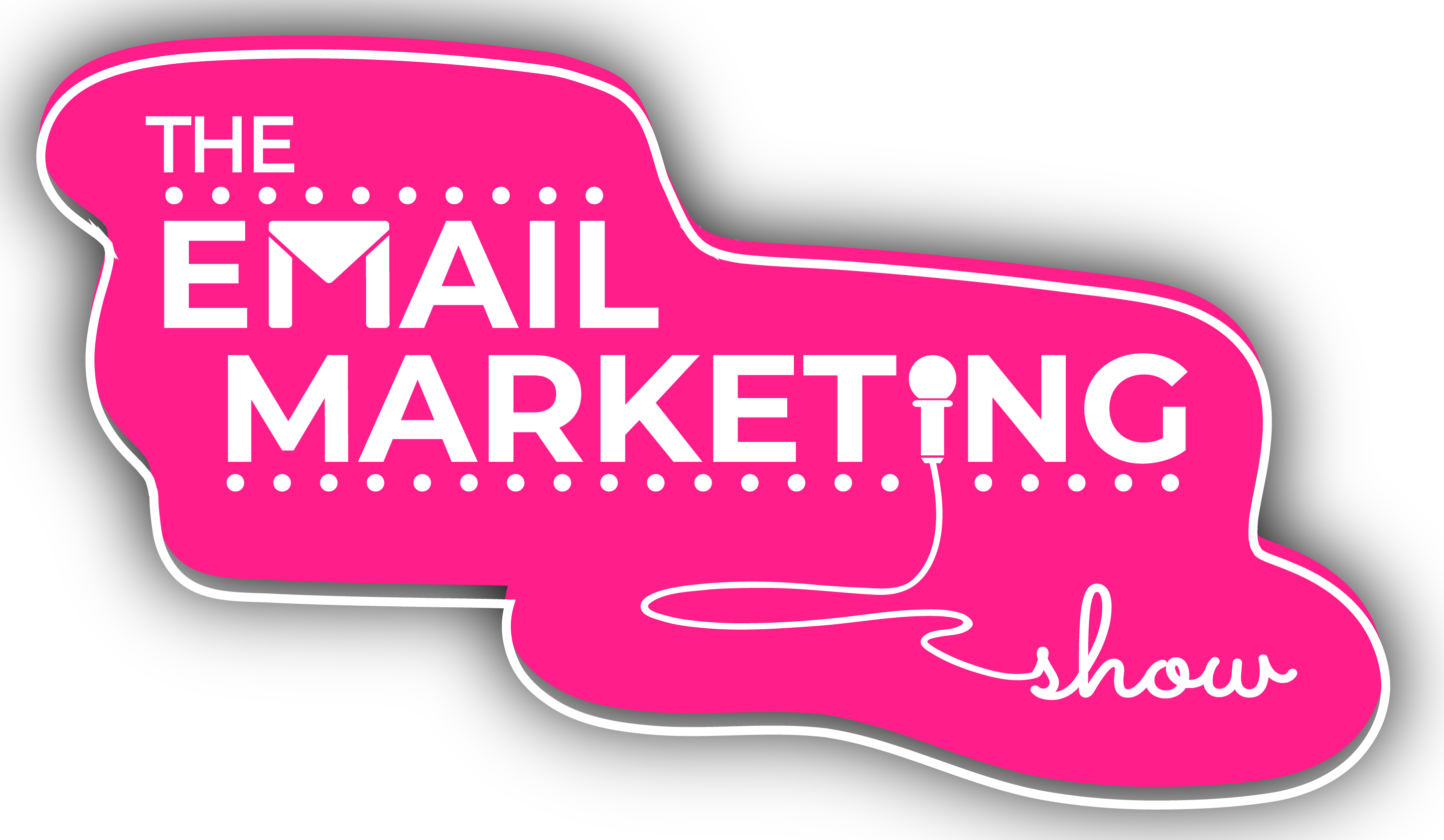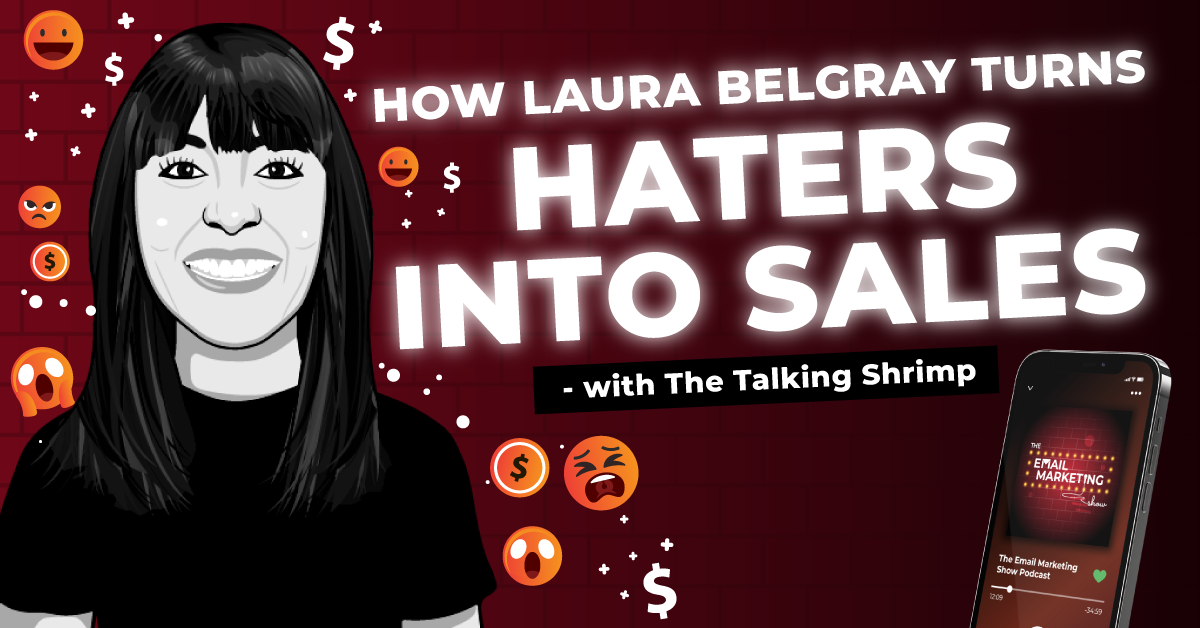
Turn Problems into Opportunities – Convert Haters into Sales with Laura Belgray from The Talking Shrimp
So you started sending more emails to your subscribers and now you're getting ‘hate mail'. That's right – some people are replying with complaints and negative feedback. And how do we deal with those? Laura Belgray, the founder of Talking Shrimp® and co-creator of The Copy Cure with Marie Forleo, has been a professional writer for over two decades and has won big awards for her work. In this conversation, she tells us everything we need to know to turn problems into opportunities.
Because she is The Queen of turning haters into sales.
Want to know how it's done?
Let's hear it from Laura.
SOME EPISODE HIGHLIGHTS: (0:25) Want to get more sales from your email marketing? (3:33) Fancy a 14-day FREE trial with Keap? (4:07) Can Laura hold her own on a skateboard or did she appear in the Sesame Street theme on TV? (6:09) What kind of 'hate' emails does Laura get? (8:25) What to do when you receive emails from 'haters'. (11:29) Let go of the people who aren't interested in buying what you sell! (15:22) How to turn 'hate email' into a piece of content to support your launch. (20:37) How to turn 'hate emails' into evergreen content. (23:35) 'Haters' are like hecklers - they just want significance. (28:34) Subject line of the week with Laura Belgray.
Want to get more sales from your email marketing?
We put a little something together for you – it's really cool and it's FREE (yes, we're nice like that). If you want to make more sales from your email marketing, you need those clicks on the things that you're selling!
So we've got 12 creative ways to help you get more clicks in every email you send. It's a FREE download, and it's called Click Tricks. You can grab it here.
The kind of ‘hate emails' Laura gets
One thing we have in common with Laura is using stories as a way of communicating with our audiences. Sure, that makes us a little vulnerable because when you share stories and experiences from your own life and people don't like them, their ‘hate' can be directed towards you.
So what kind of ‘hate' are we talking about here? Oh, let's see. Laura was told her emails were lame and totally sucked, for example. Or that she emails too much and she should ‘slow her roll'. And even that people are trying to unsubscribe, but there's no link (an absolute lie!)
Sometimes these comments are so ridiculous that they're easy to brush off. But sometimes they sting. And Laura admits she's sometimes tempted to write back and be reactive about the situation.
But…
There's a better way to do things.
What to do when you receive emails from haters
The right thing to do, Laura explains, is to avoid responding straight away. Don't defend yourself – don't waste your time telling people why they're wrong. It’s okay to lose these ‘haters' from your list because they're not the people you want!
Instead, Laura does something constructive – she will showcase these comments. She’ll take a screenshot, copy the words, put them into an email and social media posts, and she’ll share with her audience. She might admit she was hurt by the negative comments sometimes, but she’ll also talk about why what people say is wrong and share value with her audience in the process.
And do you know why her audience loves it when she does this? First of all, people like to see how we handle things we’re afraid of – things that might happen to them too. Because if you're someone who emails often and is good at this, you'll get these sort of emails too. Truth is – the better you are at something, the more people are going to ‘hate' you!
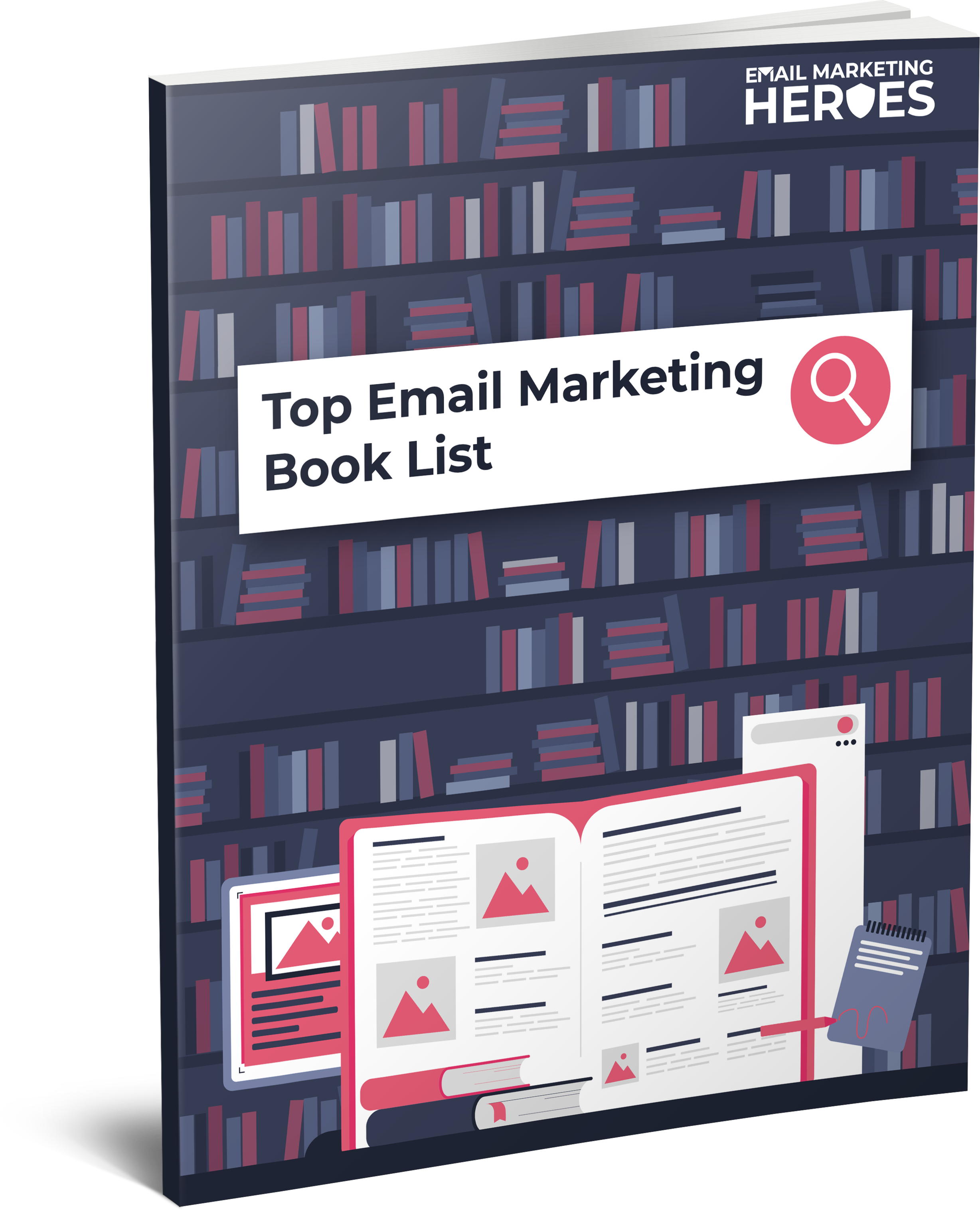
The Top 10 Books To 'Power Up' Your Email Marketing
10 book recommendations that will improve all areas of your email marketing (including some underground treasures that we stumbled upon which have been game-changing for us).
How sharing ‘hate' emails with your audience impacts you
It's also interesting for people in your audience, Laura says, to see how a person they respect handles the process to turn problems into opportunities. And when you admit that negative words have an effect on you, it's relatable and comforting to your audience. Equally, if you show why you're not bothered by these comments, there will be people on your list who can relate to that.
When people in your audience see you handle criticism well, they rally around you – they get on your side and defensive on your behalf. If the ‘hater’ is complaining you sell too much, you might have people react by buying! Because they're on your list to buy from you, and they'll prove it to you by buying your products or services.
Let go of the people who aren't interested in what you're selling
Laura knows that the more you email, the more you sell. The more you get your message out to people, the more people you'll help or delight. So by emailing more, you're creating such a positive effect that it’s worth the trade-off of losing some ‘haters'.
Because the more emails you send, the more unsubscribes you're going to get. But, as we always say, unsubscribes are a good way of cleansing your list. The people who leave are people who don't want to hear from you – they aren't interested in what you have to say or sell. So you don't want them on your list!
Because if they're not going to buy or even open your emails, they're clogging up your list. Letting them go is a cleansing process for your list. Let's remember that people on your list who don't open your emails affect your deliverability. So let them go!
How to turn a ‘hate email' into a piece of content
We asked Laura how she frames the negative comments she receives from her subscribers and turns them into something of value. To answer our question, Laura shared an example of someone who got in touch with her to say she was sending too many emails (we called this guy Bob).
She took a screenshot of Bob's email, quoted it into one of her emails and told her audience what she said back to him. She told Bob (and her list) that when it comes to email marketing, more is more – especially if you're launching or selling something. Laura backed this up with a graph that showed that the more emails she sends, the more products she sells. And it’s that frequency of emailing that made her a $1 million yearly income! So she’s going to keep sending emails. And Bob is of course welcome to get off the ride.
When the ‘haters' reply back
Do you know what happened next? Bob actually replied back! He said he'd been schooled by Talking Shrimp and humbly accepted Laura’s rebuttal. Fantastic, right?
The best thing is that this happened in the middle of a launch of one of Laura's courses – one that teaches the art of emailing. And this whole thing with Bob was so apt that it helped her sell the course! Because when Laura pointed out that sending more emails generates more money, more people realised they needed the exact product she was selling. This was a perfect example of how Laura made more sales using hate email.
But she uses these kind of emails all the time – even when she isn't doing a launch. She uses these emails to make her audience feel better about ‘haters' and to educate them on how to handle and process criticism.
You are not for everyone!
Because it's important we all remember we're not for everyone – no one is. There'll always be someone who wants you to do things differently.
But you don't need to change anything.
It's like the analogy we like to use of people on your email list being guests who come into your house. When they come to you, they need to abide by your rules. And if they don’t like the décor or the furniture, you’re not going to change it for them! Because this is your house. So you run your list the way you want to run it.
How to turn your ‘hate emails' into evergreen pieces of content
Laura will always re-use ‘hate emails', especially if they got a good response. If the emails are time-bound and include copy along the lines of “this happened to me today”, she’ll tweak them to say “last time I launched, this happened to me,” for example. This helps her make the emails more time-sensitive.
But emails from haters make for great content, whether they’re during a launch or not. For example, someone once criticised Laura for having a typo in an email. And Laura pointed out that copywriters aren’t copy editors – they make typos. But this doesn't mean they can't be trusted or aren't professional! So Laura created an email with the subject line “the typo that ruined my career”. And of course, the point was that a typo didn't ruin her career!
That was a great example of everyday content – not something she'd only share during a launch. Because anything can be turned into a piece of content.
‘Haters' just want significance
This conversation with Laura also reminded us of what happens in the stand-up comedy and entertainment worlds with hecklers. Hecklers are people who want a bit of significance.
It's the same with email marketing. When Bob got a reply from Laura, he probably had his heart filled. He felt important because he was spotlighted and pointed out in the audience. He got significance.
Of course, that doesn't mean you should reply to everyone. Laura, for example, has a customer service manager who will often take care of these types of emails and reply to people. Laura will sometimes reply to public comments though, like those on a Facebook ad for example, in order to show a public record of her responses. And she might screenshot those exchanges and use them as content.
Subject line of the week
A subject line that Laura uses with every launch is “DUDE”. This was an email about getting a testimonial from a guy who's on Laura's list who is also an awesome email marketer – Chris Orzechowski. He emailed Laura a fabulous response to a course he’d bought, telling her how much he made from the first email he wrote after buying the course.
Laura showcased this testimonial but also the fact she got an email from a guy. You see, Laura has a lot of women on her list and proportionately fewer men. So getting a testimonial from a guy was exciting – she now calls these testoster-monials. And she thinks having testoster-monials on her sales page makes a huge difference. Because it's all about representation. It's about how as consumers we like to see faces that look like ours – whether it's our race, the colour of our hair, or our gender. So the email talked about the importance of showcasing different kinds of people on your sales pages. Brilliant, right?
Useful Episode Resources
About Laura
If you want to connect with Laura, you can find her on her website or on Instagram. You can also grab Laura’s free guide to subject lines here – it’ll give you 33 non-sucky subject lines for emails that always get opened, plus proven templates to write your own.
Related episodes
Why You Shouldn’t Worry About Your Unsubscribe Rate.
The Surprising Thing That REALLY Impacts Your Email Deliverability.
Why You Need to Avoid These Email Marketing Mistakes.
FREE list of the top 10 books to improve your email marketing
If you want to write better emails, come up with better content, and move your readers to click and buy, here's how. We put together this list of our Top 10 most highly recommended books that will improve all areas of your email marketing (including some underground treasures that we happened upon, which have been game-changing for us). Grab your FREE list here.
Join our FREE Facebook group
If you want to chat about how you can maximise the value of your email list and make more money from every subscriber, we can help! We know your business is different, so come and hang out in our FREE Facebook group, the Email Marketing Show Community for Course Creators and Coaches. We share a lot of training and resources, and you can talk about what you're up to.
Try ResponseSuite for $1
This week's episode is sponsored by ResponseSuite.com, the survey quiz and application form tool that we created specifically for small businesses like you to integrate with your marketing systems to segment your subscribers and make more sales. Try it out for 14 days for just $1.
Join The League Membership
Not sick of us yet? Every day we hang out in our amazing community of Email Marketing Heroes. We share all of our training and campaigns and a whole bunch of other stuff. If you're looking to learn how to use psychology-driven marketing to level up your email campaigns, come and check out The League Membership. It's the number one place to hang out and grow your email marketing. Best news yet? You can apply everything we talk about in this show.
Subscribe and review The Email Marketing Show podcast
Thanks so much for tuning into the podcast! If you enjoyed this episode (all about how to turn problems into opportunities and ‘haters' into sales) and love the show, we'd really appreciate you subscribing and leaving us a review of the show on your favourite podcast player.
Not only does it let us know you're out there listening, but your feedback helps us to keep creating the most useful episodes so more awesome people like you can discover the podcast.
And please do tell us! If you don't spend time on email marketing, what do you really fill your working days with? We'd love to know!


